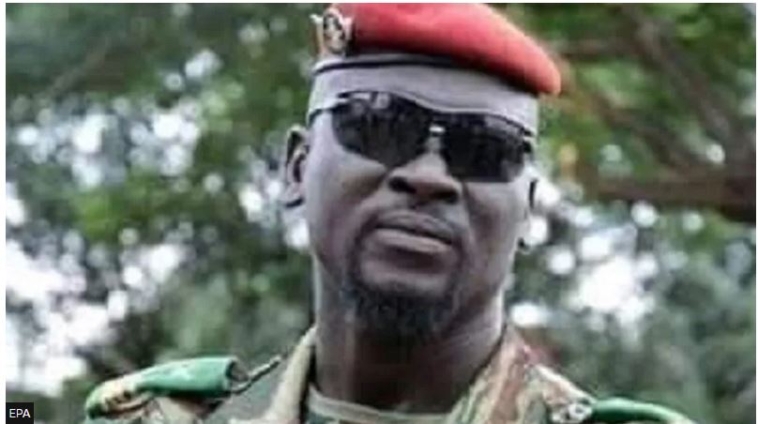Guinea's military junta has protested to Russia's ambassador after his embassy reportedly warned of possible unrest in the capital, Conakry.
The warning was issued after junta leader Colonel Mamady Doumbouya dissolved the government on Monday, and ordered the closure of all borders.
Ambassador Alexey Popov apologised to the junta for what he called a misunderstanding, Guinean media reported.
Col Doumbouya took power in a 2021 coup.
He dissolved his government on Monday without offering any explanation.
He also ordered the seizure of the passports of sacked ministers, and the freezing of their bank accounts.
Guinean media reported that Col Doumbouya's decision led to the Russian embassy in Guinea advising Russian nationals to be vigilant as there could be unrest in the West African state's capital, Conakry.
The junta reacted angrily, with an official in its foreign ministry summoning Mr Popov to a meeting.
"I explained that it was a misunderstanding, a false translation of what was published. The announcement was published only in Russian for Russian citizens," Mr Popov was quoted as saying by Guinea's state-owned television and radio.
The junta accepted the apology, while Mr Popov said the incident would not affect relations between the two nations.
Guinea is one of several former French colonies in West Africa to be hit by coups in recent years.
The juntas, which seized power in Mali, Niger and Burkina Faso have pivoted toward Russia, while being hostile towards France and the West African regional bloc, Ecowas.
However, Col Doumbouya has tried to maintain good relations with all sides.
He has promised to hold elections to restore democratic rule by the end of 2024.
The junta banned all demonstrations in 2022 and has detained several opposition leaders, and members of civil society groups.
Col Doumbouya overthrew President Alpha Condé in September 2021, saying the army had little choice but to seize power because of rampant corruption, disregard for human rights and economic mismanagement.
Mr Condé was Guinea's first democratically elected president, taking office in 2010 following the end of military rule.
He was re-elected in 2015, but faced protests four years later when he changed the constitution to run for a third term.
Latest Stories
-
Joy FM Prayer Summit for Peace ends in electrifying worship and prayer
41 mins -
The Conscience of Leadership: A call to President Akufo-Addo on Ghana’s environmental devastation
1 hour -
Ghanaian youth unaware of their right to hold politicians accountable – Youth Bridge Foundation
2 hours -
Judge delays Trump sentencing for a third time
2 hours -
2024 WAFCON: Ghana drawn against defending champions South Africa in Group C
3 hours -
Photos from DW-JoyNews street debate on ‘galamsey’
4 hours -
Mimmy Yeboah: Blending heritage with global sophistication, confidence redefined through couture
4 hours -
100 Most Influential People Awards 2024: Brain Hill International School’s Director Mary Anane Awuku honoured
4 hours -
Akufo-Addo commissions 97-km Tema-Mpakadan railway line
4 hours -
Majority requests recall of Parliament
5 hours -
Kanzlsperger and Professor Quartey support WAFA with medical Donation
5 hours -
Gideon Boako donates 10 industrial sewing machines to Yamfo Technical Institute
5 hours -
‘Golden Boy’ Abdul Karim Razak honored at WAFU-B general assembly
5 hours -
Buipewura Jinapor secures Vice Presidential position in National House of Chiefs with record votes
5 hours -
2024 election: I want results to come out like ‘milk and honey’ – Toobu
5 hours

